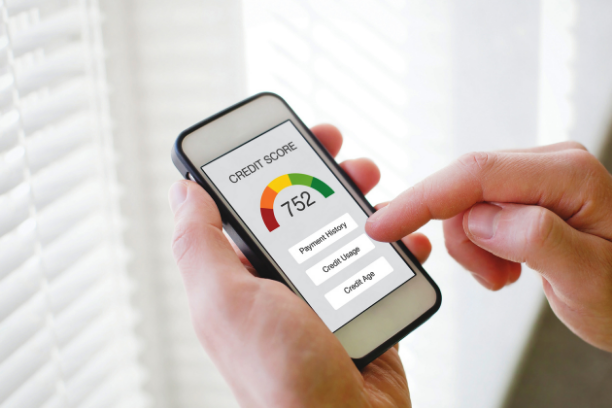How to Protect Yourself – and Your Money – After Divorce!
Going through a divorce can be an unfortunate and incredibly traumatic life event for most people. But when your debts and credit issues become tangled up in the process this adds another layer of unwanted stress and anxiety to the mix.
Not to mention there are many potential long-term negative repercussions to your creditworthiness and financial future if you do not manage your accounts properly from the get-go.
As a leader in the debt elimination and credit repair industry and the founder of Insight Credit Group Inc., I’ve helped tens of thousands of clients over the past 25 years minimize the negative impacts a divorce can have on your overall credit worthiness. And when it comes to divorce horror stories, we’ve pretty much heard them all!
Divorce-related financial nightmares have included everything from a spouse committing identity theft, to opening fraudulent accounts in the ex-partner’s or their child’s name, to racking up large debts and not paying the bills, and so much more.
All of this will do considerable damage to your credit worthiness and burden your life for a very long time. Unfortunately, digging yourself out of this mess can be incredibly daunting, costly, and time consuming, especially if you have no idea where to begin.
Now to be very clear, the divorce itself will not damage your credit scores or credit worthiness. It is the actions taken or not taken during the course of, and after the divorce, that can cause tremendous damage. So, the sooner you can address your debt and credit issue, the better.
The very first order of business should be to separate yourself from ALL joint debts. I cannot stress this enough!!! We’ll talk more about this later.
I also strongly suggest obtaining a “Credit Monitoring” service that provides you access to ALL three credit bureaus so you can monitor your credit each month. Be sure to set up the alerts so you are notified every time there is a change to your credit score or if any unusual activity occurs.
I want to share some insightful actions you can take early on to protect yourself and minimize the damage a divorce can potentially have on your credit. However, in the event you find that your credit has already been adversely impacted and/or your debt is unmanageable, please feel free to reach out to us. We are happy to share several options to eliminate your debts and get your credit back on track.
Like it or not, credit is a necessary evil and it affects every aspect of your financial life, so it’s important to keep it as intact as possible. This is especially true after a divorce since you will need your credit to be in good standing when trying to get yourself back on your feet when it’s over.
Before we dive into the action plans, I want to talk about one very common misconception when it comes to divorce. That misconception is the good old court-appointed “Divorce Decree”.
The divorce decree is the court document that formalizes the end of a marriage and outlines a number of things that are legally binding terms of the divorce. Two of those things are the division of assets and your financial obligations.
The misconception is… if the divorce decree states “My spouse is responsible for the debts” then I am off the hook free and clear and I have nothing to worry about. WRONG, WRONG AND ABSOLUTELY WRONG!
Based on the decree you may not be financially responsible for the past debts, but that does not mean you will not be negatively impacted if the responsible party fails to uphold their obligations when it comes to paying those debts.
When it comes to debts owed, the lenders only care about one thing… Getting Paid! They do not care what the divorce decree says. As far as the lender is concerned, if both parties are on a credit card or loan agreement, both parties are legally liable for the debt regardless of what the judge outlines in the divorce decree.
If the decreed responsible party misses a payment or defaults on the debt in any way, both you and your ex-spouse will suffer long-term repercussions when it comes to your credit taking a major hit.
Another important thing to take into consideration is if a debt ends up going delinquent for non-payment, the creditor can legally sue you for non-payment as long as the debt is within your state’s “Statute of Limitations”.
That said, it doesn’t mean that they will sue you, but they do have the right to do so. And if they do, they can either garnish wages from your paycheck if you are a W-2 employee, or they can place a lien against your properties, or they can levy your bank accounts
This lien can prevent you from buying a new home – or if selling a home, the money owed on the debt will be taken out of the profits of the sale. If the creditor levies your bank accounts, this means they can freeze your accounts until the debt is repaid. If the debt is not repaid within their timeline, the creditor can strip the money from your bank account to cover the debt.
In a sense, it seems that the divorce decree is not worth the paper it is written on. While it is true that it will not protect you from harmful damage to your credit and long-term repercussions to your credit worthiness if the responsible party defaults, you do have recourse if you choose to exercise it.
You can take them back to court in hopes of recovering the damage done to you, however that will take time and be costly. Since we are not attorneys, I will not get into the weeds about the legalities of this, so it is best to talk with your attorney if the situation occurs.
To continue the review of how divorce can affect your debts, let’s talk about the different types of debts, who’s responsible for payment and why it is critically important to separate yourself from these debts as quickly as possible. The ownership of debts will typically fall into one of four categories:
- Individual Debt – Meaning you are the only name on the account. In most states, you are responsible for any credit card debt in your name during a divorce. However, if your spouse has a credit card in their name only, you are not responsible for their debt, but if their debt goes delinquent the creditors can go after assets that you own jointly with your spouse to make up for the debt.
This is just one reason why it is so important to separate yourself from joint assets. It is also important to know that in community property states, if you accrued debt after the marriage your spouse may be responsible for your debt. If that is the case and if they fail to uphold their obligation to make payment, your credit will be negatively impacted.
- Joint Debt – Meaning that both of your names are on the account, and you are both equally responsible for paying that debt. If the debt goes into default, both of your credit scores will be negatively impacted and the creditor can legally go after both of you for payment (meaning they can sue you to garnish wages, lien properties or levy bank accounts)
- Authorized User Debt – An “authorized user” is someone who has been added to the credit card by the card’s owner also know as the primary cardholder. For example, one spouse owns the card and adds the other spouse to the card. The authorized user can make purchases with the card as if it were their own.
However, the responsibility to pay any charges remains with the primary cardholder. That said, just because you are not responsible for paying the debt does not mean your credit will not be negatively impacted if the primary cardholder fails to make payments. And if they do fail to make payments, the repercussions of that will be reflected on your personal credit reports.
- Co- Signer Debt – When you cosign a loan, you become legally obligated to repay the loan if the primary borrower doesn’t or can’t pay it. Most co-signers believe when they sign the papers that the borrower will be able to repay the loan on his or her own. However, if the borrower cannot keep up on the payments and the loan goes into default, both the cosigner and borrower can face consequences. The lender can sue both the cosigner and the primary borrower to collect the debt. And the credit of both parties will be greatly impacted.
How to “Divorce” Yourself from Co-Mingled Debts
Again, I cannot stress enough the importance of separating yourself from co-mingled debts and assets. You should do this sooner than later to protect yourself from potential future financial ruin. Unfortunately, this is easier said than done.
It really depends on each bank’s policies when it comes to removing yourself or an ex-spouse from a joint account. Some creditors may allow for the removal of one person from a joint card, but typically both spouses must co-sign any documents associated with removing their name and a new account must be created in the individual’s name who is responsible for the debt.
If there is an outstanding balance, the creditor may not allow either party to be removed. Instead, they may close out the account and deactivate the cards so no further charges can be accrued.
If this is the case it is in the best interest of both account holders to continue making the monthly payments on time. If the payments go delinquent, both account holders will suffer considerable damage to their credit.
Be aware that closing credit cards will damage your credit scores in the short term but this is better than having one spouse or the other continue to rack up debt, especially if they have no intention of paying said debt because that will do far more damage to your credit in the long run than closing the account.
Whether you are dealing with joint debt, authorized user debt or co-signer debt, the protocol is the same. Authorized user debt will be the easiest. Joint debt and co-signer debt will prove to be a bit more challenging.
- Call the bank and find out what their policy is for removing yourself or your spouse from the account.
- Typically, both account holders will need to give permission to the creditor to remove one spouse or the other when it comes to joint debt and co-signer debt.
- If your spouse will not agree to remove you from the account, see if they will agree to close all joint accounts completely so no further charges can be made. If they agree, the creditor will typically need permission in writing from both parties. However, in some cases a creditor may not allow the account to be closed until it is paid off.
- Often times, a new contract or credit card may be initiated in the name of the party responsible for paying the debt based on the divorce decree.
Is your debt unmanageable or has your credit already been damaged?
Last but not least, if you find yourself saddled with unmanageable debt or your credit ends up being severely damaged, please reach out to us.
We have various options available to eliminate debt and restore your credit back to good standing. We are happy to go over those options with you. And you just might find them to be your savings grace.
Remember, there is light at the end of the tunnel and yes, there is life after divorce!






